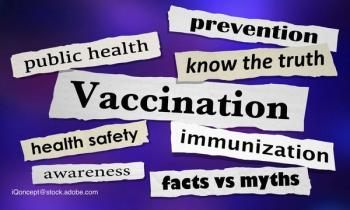
Contemporary Pediatrics asked pediatric infectious diseases experts how community pediatricians can talk with families who are firmly against vaccinating their children or hesitant to do so. Here’s what they said.

Contemporary Pediatrics asked pediatric infectious diseases experts how community pediatricians can talk with families who are firmly against vaccinating their children or hesitant to do so. Here’s what they said.
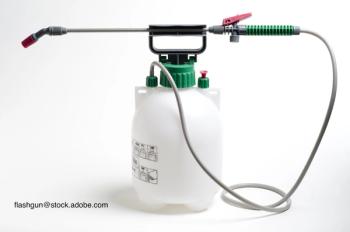

A new web-based intervention for evaluating respiratory tract infections can help parents reduce the need for office visits.


Pediatricians play a powerful role in educating parents about vaccines’ importance and proven safety. The way they present the information can impact whether a vaccine-hesitant or opposed parent listens and ultimately approves or disapproves of childhood vaccines, according to Patricia Whitley-Williams, MD, president-elect of the National Foundation for Infectious Diseases and chief of the Division of Allergy. Immunology, and Infectious Diseases at Rutgers Robert Wood Johnson Medical School, New Brunswick, New Jersey.

A new study from Germany highlights another reason to fight childhood obesity: to reduce the risk of developing pediatric multiple sclerosis (MS) as well as protect the efficacy of first-line treatment for the disease.

Dr. Andrew J. Schuman looks at why artificial intelligence has become the next big thing in technology.

Researchers suggest that genetics is a major contributing factor to developing autism spectrum disorders.

The focus on screen time has been on its impact on toddlers and young children, but a new study in JAMA Pediatrics indicates that teenagers can be impacted by long periods of screen time as well, with negative mental health consequences.

Mark H. Sawyer, MD, discusses how empathy and the personal touch help him navigate the antivax movement.
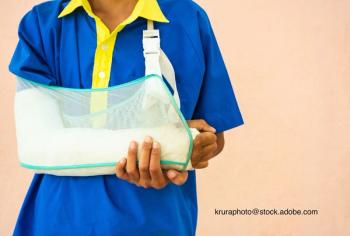
Kids who experience a bone fracture in childhood are more likely to suffer another.
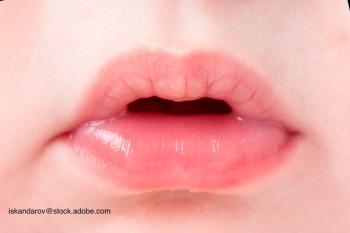
Meant to help infants breastfeed more easily, the frenotomy procedure appears to be performed on some infants who don’t require it, according to a new study found in JAMA Otolaryngology-Head and Neck Surgery.

Dr. Andrew J. Schuman looks at the artificial intelligence (AI) programs that may be found in your practice sooner rather than later.

Updated practice guidelines published by the American Academy of Pediatrics (AAP) aim at managing infants at risk for Group B streptococcal disease.

With parental substance use on the rise, in large part attributed to the opioid crisis, foster care is seeing an increased number of children being placed into its system, according to a research letter published in JAMA Pediatrics.
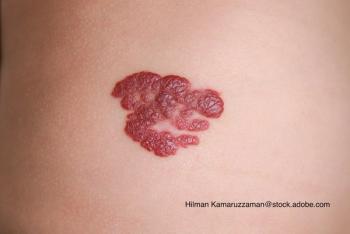
Contemporary Pediatrics sits down exclusively with Sheila Fallon Friedlander, MD, a professor dermatology and pediatrics, to discuss the one key condition for which she believes community pediatricians should be especially aware-hemangiomas.

It may seem like something that only adult women will experience, but reproductive coercion can be a problem for older teenaged girls as well, according to a new study published in Obstetrics & Gynecology.
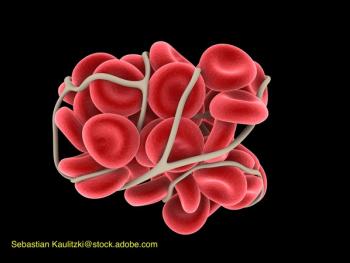
Janssen, a pharmaceutical subsidiary of Johnson & Johnson, has announced plans to pursue a pediatric indication for its best-selling blood thinner, Xarelto (rivaroxaban).

A new study from Children’s National in Washington, DC, confirms that universal background checks and strict state laws are key to reducing the deaths of children and teenagers by firearms.

Alone, on its back, in a crib. That’s the only safe place for an infant to sleep. New data say why car safety seats are not included.
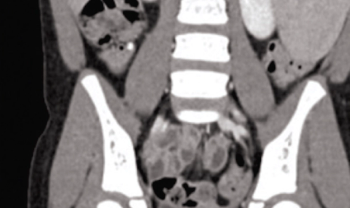
A 6-year-old female with history of previously resolved iron-deficiency anemia presents to the emergency department (ED) for numerous episodes of nonbloody, nonbilious vomiting and diffuse abdominal pain that began on the day of presentation. She had initially presented to her pediatrician who felt a large left-upper-quadrant abdominal mass and referred her to the ED for further evaluation. She has no associated diarrhea or urinary symptoms. What's the diagnosis?
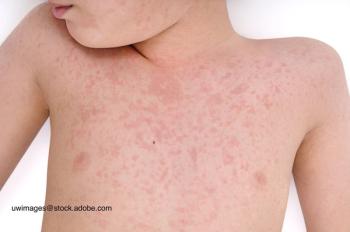
Measles cases continue to add up in the worst outbreak of the viral infection in the United States since 1992.
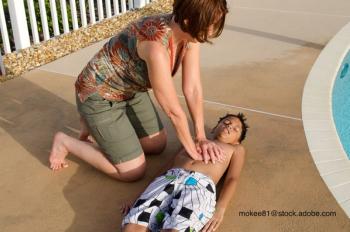
A new study highlights the fact that black, Hispanic, and other ethnic minority children who suffer from out-of-hospital cardiac arrest are less likely than their white counterparts to receive cardiopulmonary resuscitation (CPR) from a bystander.

The American Medical Association (AMA) calls out government agencies for deplorable conditions for children and pregnant women in immigrant border facilities.

Already an effective treatment for Clostridium difficile infection, fecal transplantation may offer children with autism new hope.

Adopting technologies with artificial intelligence (AI) will change patient care in many ways. Here’s where AI has been, where it is now, and what it holds for the future of pediatrics.

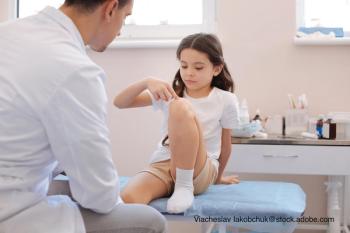
The Centers for Disease Control and Prevention (CDC) cautions pediatricians and other pediatric healthcare providers to be on the lookout this summer and early fall for symptoms of acute flaccid myelitis (AFM) in young patients who complain of limb and muscle weakness.

A new study from researchers at Columbia University indicate that the solution to increasing influenza immuinzation rates may be simple.